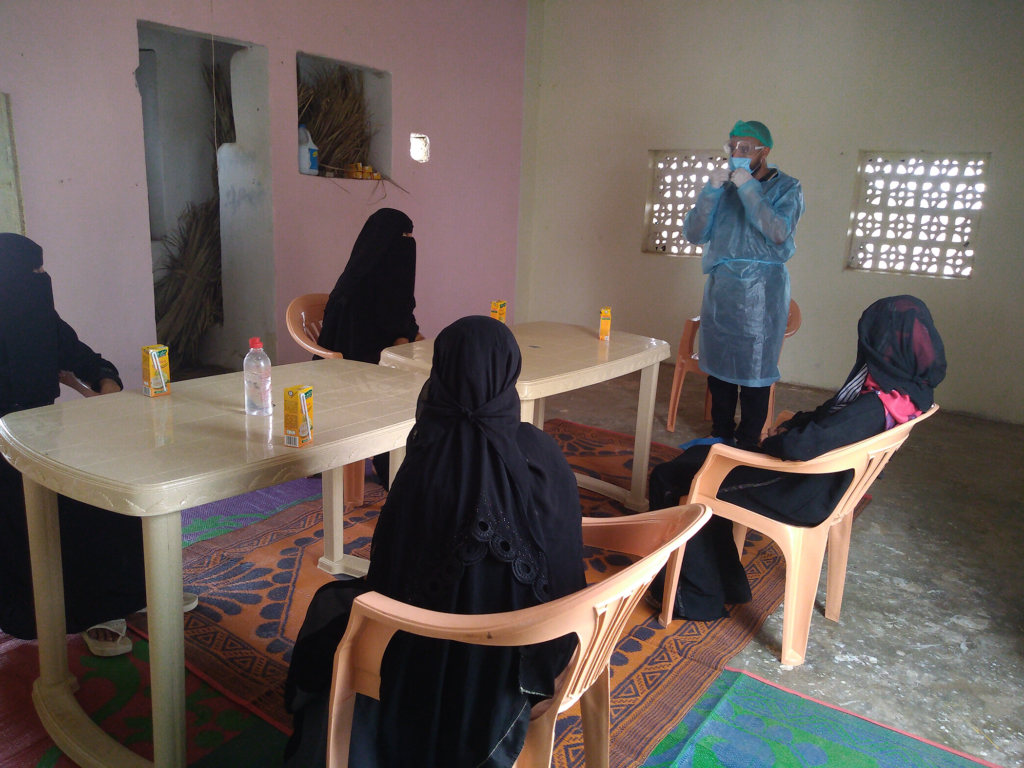International Medical Corps’ Yemen team has helped build local-community support for a new strategy to protect those facing great risk of contracting COVID-19: elderly, disabled and chronically ill Yemenis forced by war and circumstance to flee their homes and take shelter in crowded displacement camps.
The concept, developed by the London School of Hygiene and Tropical Medicine and adapted to conditions in Yemen by the Danish Refugee Council (DRC), is known as community shielding. It relies on socially isolating the most vulnerable residents from the overcrowded conditions that so often characterize displacement camps during times of war and unrest.
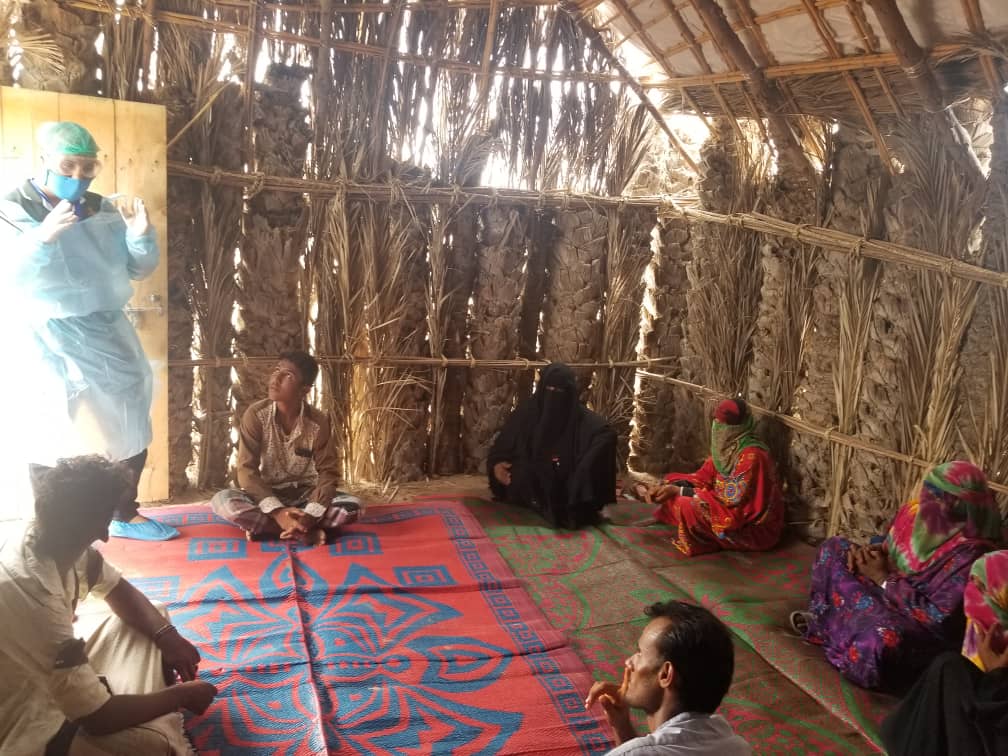
Though the concept makes sense on paper, implementing it in practice has been a challenge—one that requires buy-in not only from families that are directly involved, but also from other camp residents and influential elders.
As the DRC prepared to launch a pilot program at 16 formal and informal sites for internally displaced persons (IDPs) across western Yemen’s Hodeida Governorate in June 2020, wary camp residents wanted to hear more details—including the medical rationale behind the plan—before fully accepting it. Further, they wanted to hear these details from medical specialists.
The DRC, respected for its work supporting displaced populations in Yemen and around the world, reached out to International Medical Corps for the kind of specialized medical support it felt was needed to respond to this sudden, fast-spreading infectious disease. International Medical Corps is addressing the threat of COVID-19 in more than 30 countries—including Yemen, where we have maintained a robust aid program since 2012. Our work there currently includes a range of medical and other health-related services that include the prevention and control of communicable diseases.
In response to their request, we deployed a senior medical officer to join a DRC site-management coordinator on a 10-day trip, with stops at 15 of the 16 IDP camps in Hodeida Governorate where the group planned to introduce the community shielding concept. In each of the camps, the two met with separate groups of residents (four men and four women) in sessions where our medical officer, Dr. Karam Showki, provided an overview of COVID-19, explained preventive measures available to reduce the risk of transmission and emphasized the importance of shielding.
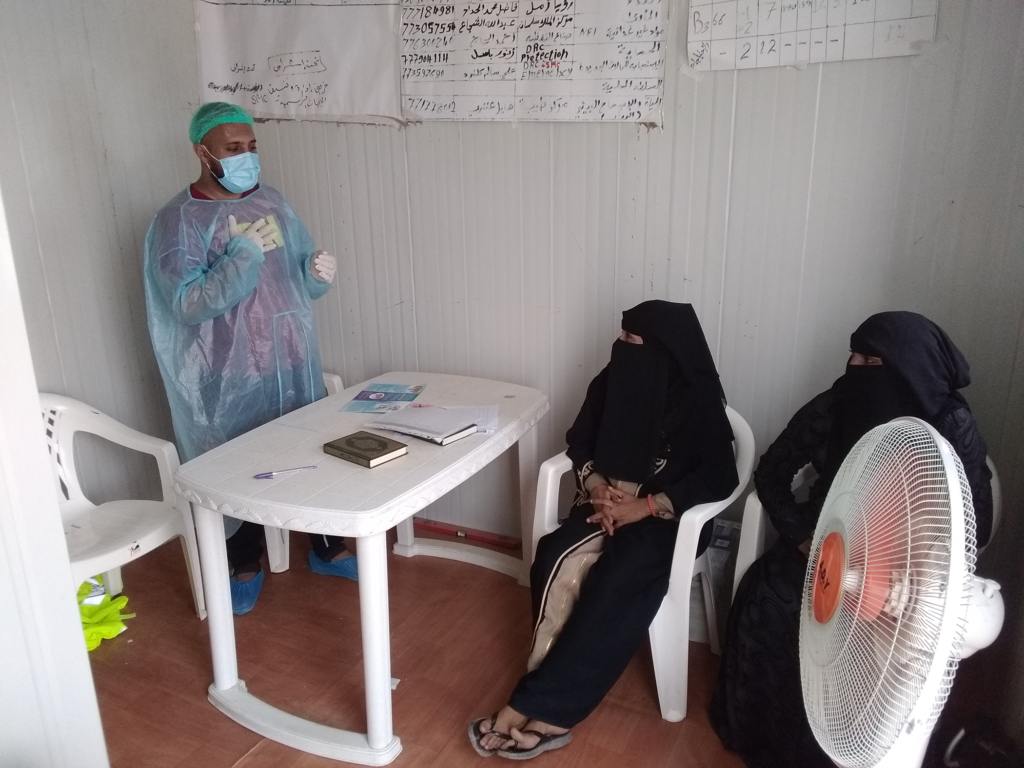
Dr. Showki says the decision to meet only with a few camp residents had drawbacks, but the benefits of smaller numbers outweighed them. The small groups, he said, facilitated open exchanges between participants and heightened both the quality of the meeting and the feedback that came during the more relaxed question-and-answer sessions that followed.
“The interaction was better,” he explains. “We could see there was genuine interest. They wanted to know more about the disease, and what they could do to protect their family members and the community in general.”
Resistance to the shielding idea gradually eased.
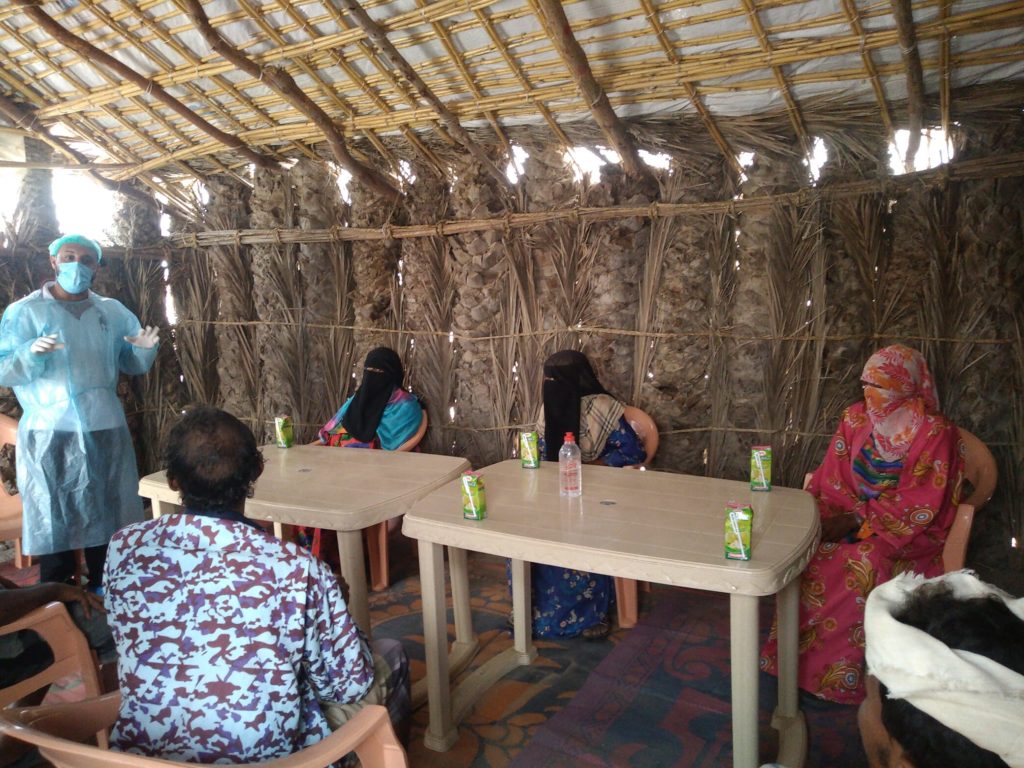
To accommodate local cultural norms as the strategy was introduced, those designated as high-risk individuals were not totally isolated. Rather, they were housed with extended family members in separate shelters clustered together in areas of the camp designated as “green zones,” set apart from the greater camp population. In this setup, family members living in the green zone care for the needs and wants of their elderly or disabled high-risk relatives with as little disruption as possible to family unity, privacy and dignity as possible—much as would occur in their home villages.
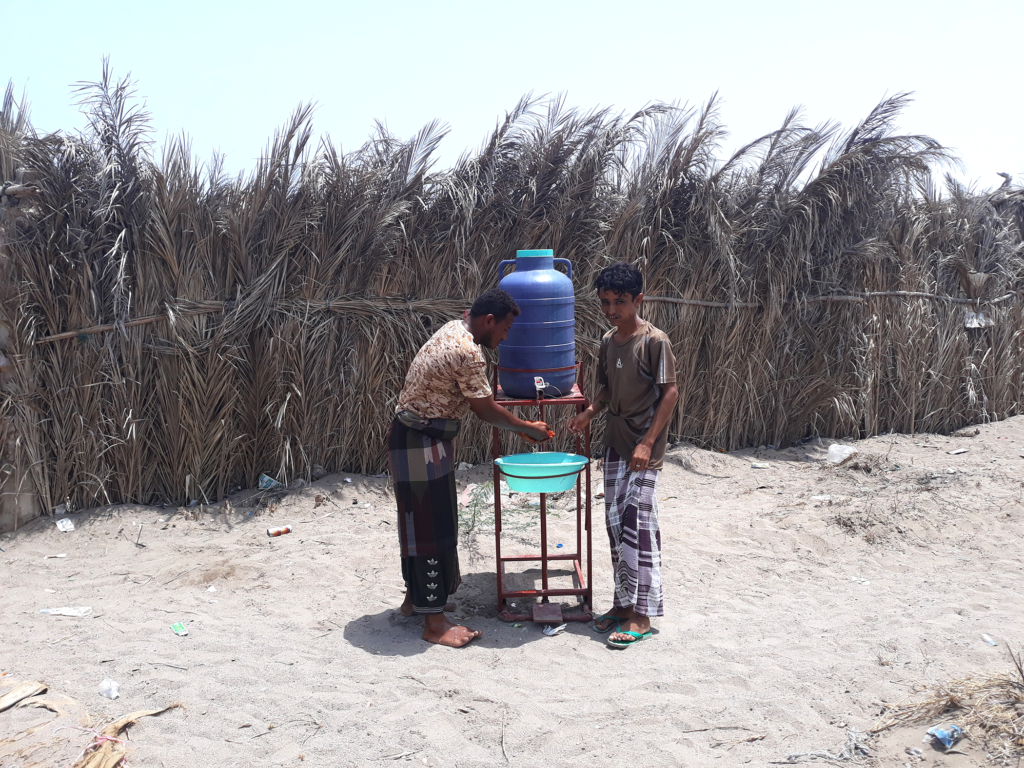
Green-zone residents are urged to practice strict infection prevention and control (IPC) measures, including frequent handwashing and—as much as possible within the confines of the limited space—social distancing. Where available, direct access to soap and water, and links to available heath systems, provide an added layer of protection for those at high risk.
Showski looks back on the experience with satisfaction: “I’ve learned that when partners combine their different skills on a program like this, it can only enhance its impact—and that ultimately benefits those we both are here to serve.”
